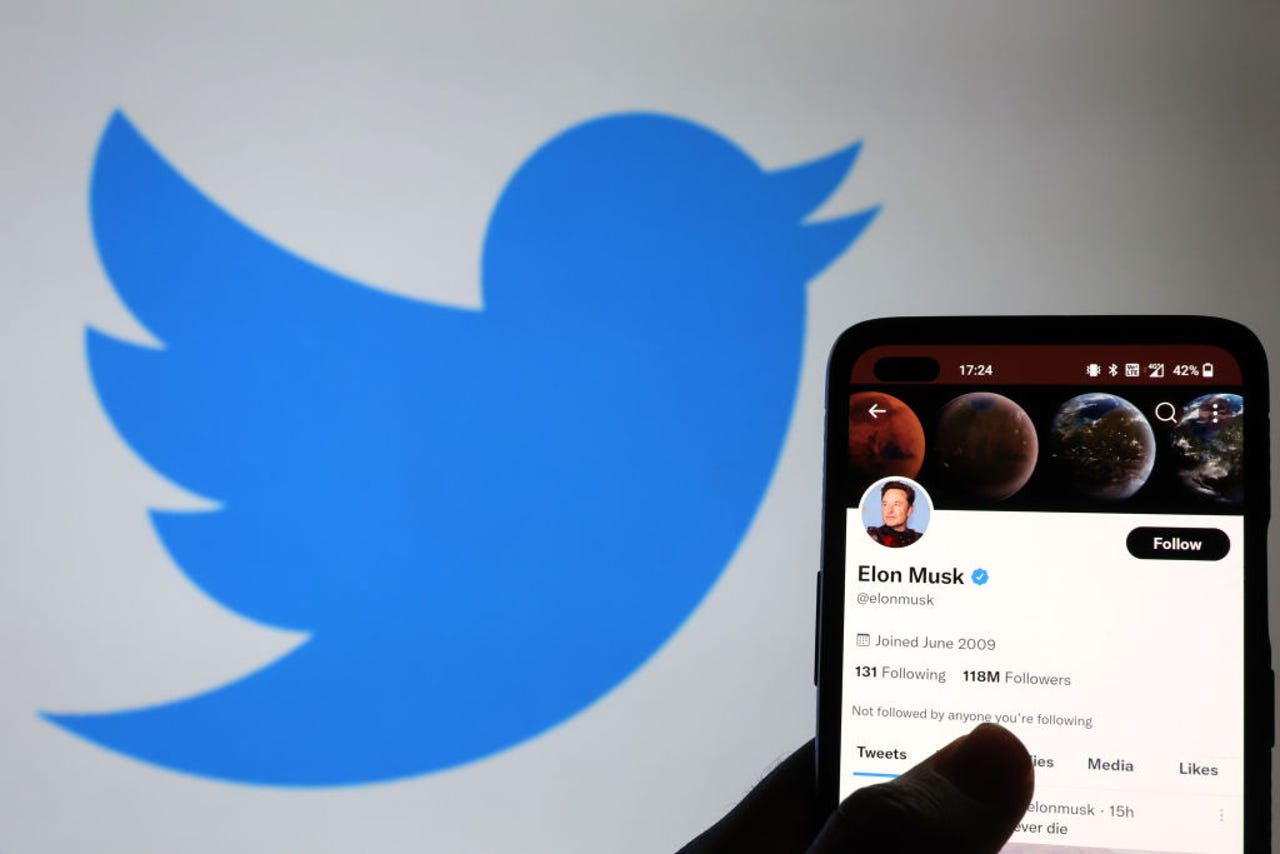Reality is dead, but at least we’ve got Twitter

If he's worried about reality, maybe everyone should be. Nathan Stirk/Getty Images
It starts with love. It always does.
When we're looking for love, we tell ourselves we're looking for something real.
Not the fake kind where someone is duping us. Not the fake kind where we're being strung along, just because we're cute and have a nice apartment. Not the fake kind where we're being told we're the love of someone's life, when we're really the love of their week.
Also: Why is Twitter turning millions of accounts into defenseless targets?
We want the real thing. Because in a life where the real is the only effective — albeit temporary — buffer against death, we need something concrete, something we can rely on.
Then, along came the tech industry.
No, that's not fair.
It's more that along came a tech industry that embraces everyone, makes money off of everyone, and begins to radically change human behavior.
When it came to love, the tech industry promised us we'd be more likely to meet the real thing. As long as we told the technology's owners more about ourselves.
Also: The best Twitter alternatives
Before we knew it, we began to feel flattered. We'd get messages from members of our target sex, people who looked comely and accomplished.
Too often, though, we never got to meet them in the end. Because they ghosted us. Because they were bots, created specifically to make us believe in the technology and to raise the dating site's engagement numbers.
We were still slow to catch on.
The more we interacted with the internetted world, the more time it took us to realize that everything wasn't as it appeared. Neither was everyone.
We plowed on because it was all so involving and, well, everyone was there.
More and more new internetted services came along, there to mine our data while tugging at our emotions.
Many of these services needed us to be mesmerized, inspired, fascinated, and, perhaps most of all, angry.
At the center of all this was, of course, Twitter.
Also: Why I'm not deleting Twitter (yet)
Thrust into the full maelstrom of humanity, we were suddenly confronted with words, thoughts, and opinions that kept on getting our goat.
How could people be like this? How could they think like this? How did the world even function with these sorts of people in it?
Yet again, we were slow on the uptake.
We didn't quite grasp that many of those screaming the loudest on Twitter were bots created in faraway places in order to create the one thing so many nefarious political types adore: Chaos.
What brings order to chaos? Why, strong leaders. And, quite naturally, strong tech companies built on crushingly rational principles.
Or so we're told.
Also: How to delete your Twitter account and protect your data, too
And now we've reached what for many may be the Final Countdown. With a strong emphasis on the last syllable.
As AI barrels its way onto our screens and into our lives, we're beginning to realize that nothing is real anymore.
But is it nothing to get hung about?
Even those who are creating the likes of GPT-4 confess they're afraid what it might do. Or, perhaps, what it might end up being.
But they plow on, because shipping is more important than stripping society of its last grip on reality.
Well, most of the AI glitterati do. Last week, still-Twitter CEO Elon Musk was among those to turn alarmist about what GPT4 is perpetrating to our world.
He and Steve Wozniak will be our defenders, for sure. They're demanding that no more AI developments are made after GPT4 — for at least six months.
Also: ChatGPT's intelligence is zero, but it's a revolution in usefulness, says AI expert
Meanwhile, the images you see, the words you read, the people you meet, everything online that makes you feel sad, happy, smart, or angry may not be real at all.
On Twitter, it may no longer be free for all, but it's a complete free-for-all for anyone with destructive motives.
Yet still we tell ourselves we know what's real. Just as we do in love.
Yet you have no idea whether I really wrote this column or whether GPT4 did it for me, do you?

